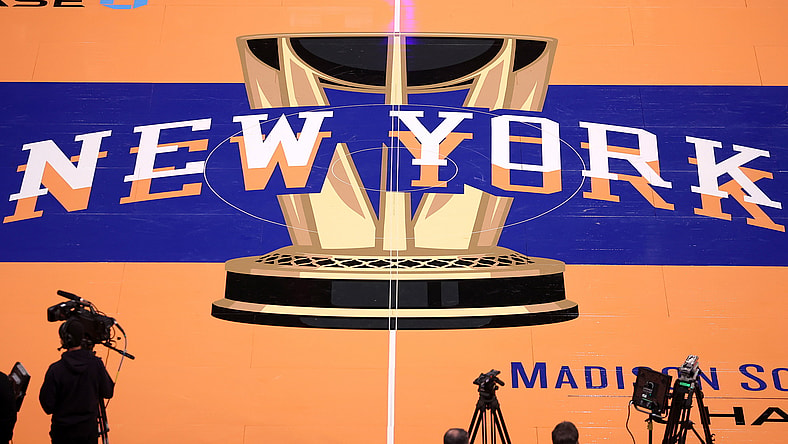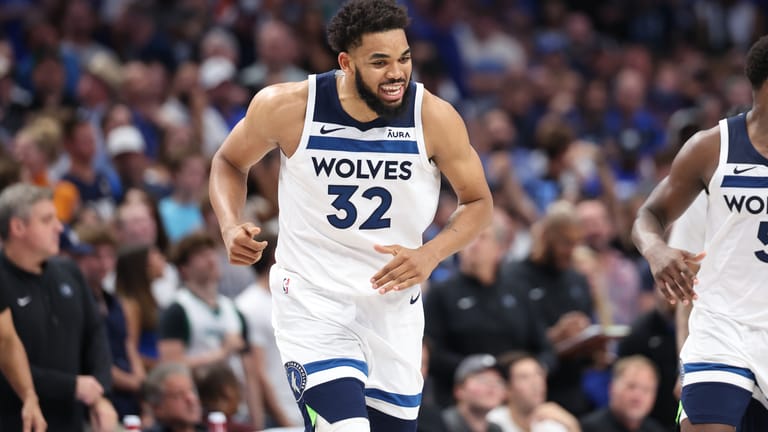
It seems that the New York Knicks front office cleverly used a loophole in the current NBA collective bargaining agreement to complete this week’s trade for Karl-Anthony Towns.
There was already a ton of excitement about the Knick’s chances this season before training camp kicked off this week. They were a top team in the East last season, and they added two-way stud Mikal Bridges to their talented roster.
However, expectations hit a new high last week when it was revealed the organization was finalizing a blockbuster trade that would land them four-time All-Star Karl-Anthony Towns. Like most big deals, it took some time to cross the Ts and dot the Is once they and the Timberwolves had agreed to the main structure of the trade.
To complete the deal, the Hornets had to be added to the deal. They will receive Charlie Brown, DaQuan Jeffries, Duane Washington Jr., and two future second-round picks in the trade. While Minnesota gets All-Star forward Julius Randle, Donte DiVincenzo, Keita Bates-Diop, and a future first-round pick. However, it seems the organization had to also use some CBA trickery to put the finishing touches on the deal.
Related: Where do the New York Knicks land in our preseason NBA power rankings?
New York Knicks loophole to complete Karl-Anthony Towns trade

“The Knicks have discovered a new loophole in the CBA. Teams in their situation cannot aggregate minimums anymore. So in the sign and trades of Jeffries, Brown, and Washington, they are paying each of those guys just $1 above the minimum,” The Athletic Knicks reporter Fred Katz revealed on X Wednesday.
All of those aforementioned players were making the league minimum. So by paying them a dollar more, it circumvents the guidelines of throwing league minimum players in a deal to make the money end of it work.
Following his report, Katz revealed that the NBA was not too happy with the New York Knicks using the little-known loophole to finalize the deal.
“I have heard from various people that the league isn’t thrilled about this — but such is the way it goes with new CBAs. The NBA tries to close up loopholes and then smart people working for teams find new ones,” he wrote.